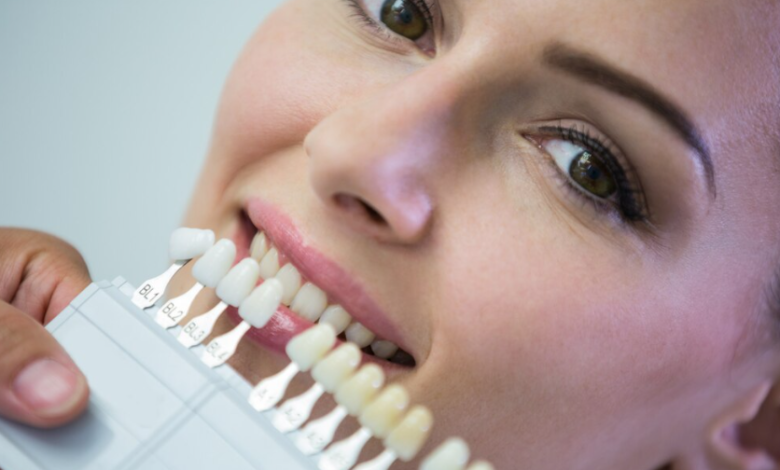Transform Your Smile with Expert Dental Crowns in Hamilton

Understanding Dental Crowns in Hamilton
So, you’re thinking about getting dental crowns in hamilton? Or maybe your dentist mentioned it, and you’re trying to figure out what it all means. No worries, let’s break it down. Basically, we’re talking about caps for your teeth. But there’s more to it than just that.
What Are Dental Crowns?
Think of dental crowns like helmets for your teeth. When a tooth is cracked, damaged, or just plain weak, a crown can come to the rescue. It’s a custom-made cover that fits right over the tooth, protecting it and making it look normal again. It’s not just about looks, though. Crowns help with:
- Strengthening a weak tooth
- Improving the appearance of a misshapen or discolored tooth
- Protecting a tooth after a root canal
Benefits of Dental Crowns
Okay, so why get a crown in the first place? Well, there are a bunch of good reasons. For starters, they can save a tooth that’s about to fall apart. Plus, they can make your smile look way better. Here’s a quick rundown:
- Restoration: Crowns bring back the natural shape and size of your tooth.
- Protection: They shield weak teeth from further damage.
- Aesthetics: Crowns can cover up stains, chips, and other imperfections. Some people also consider teeth whitening hamilton or even invisalign in hamilton but crowns might be a better solution.
Types of Dental Crowns
Now, here’s where it gets a little more interesting. Crowns aren’t all the same. There are different materials they can be made from, and each has its own pros and cons. You’ve got:
- Porcelain Crowns: These look the most like natural teeth. Great for front teeth.
- Metal Crowns: Super strong, good for back teeth where you do a lot of chewing. Sometimes gold is used.
- Zirconia Crowns: A good mix of strength and looks. A popular choice these days. If you are missing teeth, you might also want to consider dental implants hamilton or dentures hamilton as alternatives, but your dentist hamilton or orthodontist hamilton can help you decide.
Who Can Benefit from Dental Crowns?
Dental crowns in Hamilton aren’t just for anyone; they’re a specific solution for particular dental problems. It’s all about restoring and protecting teeth that need more than a filling can offer. So, who exactly is a good candidate for a crown? Let’s break it down.
Common Reasons for Crowns
There are several situations where a dentist might recommend a crown. It’s not a one-size-fits-all thing, but here are some common scenarios:
- Extensive Decay: If a cavity is too large for a regular filling, a crown can cover and protect the remaining tooth structure.
- Cracked or Broken Teeth: Crowns can hold cracked teeth together or restore the shape and function of broken teeth. I had a friend who chipped a tooth pretty badly, and a crown was the perfect fix.
- After Root Canal: A tooth that’s had a root canal can become brittle. A crown protects it from further damage. It’s like giving the tooth a little helmet.
- Cosmetic Reasons: Sometimes, crowns are used to improve the appearance of misshapen or severely discolored teeth. Think of it as a smile makeover.
Signs You May Need a Crown
It’s not always obvious when you need a crown, but there are some telltale signs. If you’re experiencing any of these, it’s worth getting checked out:
- Tooth Pain: Persistent pain, especially when chewing, could indicate a crack or decay that needs a crown.
- Sensitivity: Increased sensitivity to hot or cold can be a sign of enamel erosion or a crack. I know someone who ignored this for way too long, and it turned into a bigger problem.
- Visible Damage: Obvious cracks, chips, or large fillings that are failing are clear indicators.
- Discoloration: Severe discoloration that doesn’t respond to whitening treatments might be best addressed with a crown.
Consultation with Your Dentist
Ultimately, the best way to know if you need a crown is to talk to your dentist. They’ll do a thorough exam, take X-rays, and assess your individual situation. Don’t be afraid to ask questions and discuss your concerns. It’s a collaborative process, and you should feel comfortable with the recommended treatment plan. They can explain the pros and cons and help you make an informed decision. Plus, they can go over the different types of crown materials and what would work best for you.
The Process of Getting Dental Crowns
So, you think you might need a dental crown in Hamilton? Let’s walk through what you can expect. Getting dental crowns isn’t as scary as it sounds, I promise! It’s usually a pretty straightforward process, but it does involve a few steps to make sure everything fits just right and looks good.
Initial Consultation
First things first, you’ll have a chat with your dentist. This isn’t just a quick peek; it’s a real conversation. They’ll:
- Examine your tooth (or teeth) to see what’s going on.
- Take X-rays to get a better look at the root and surrounding bone.
- Discuss your options and whether a crown is really the best solution. Sometimes there are other ways to fix the problem, so it’s good to explore everything.
- Answer all your questions. Don’t be shy! Ask anything that’s on your mind. It’s important to feel comfortable and informed.
Crown Preparation
Okay, so you’ve decided to go ahead with the crown. Here’s what happens next. This part usually takes a little longer, so settle in:
- Numbing: Your dentist will numb the area around the tooth so you won’t feel any pain. It’s just like getting a filling.
- Shaping: They’ll then reshape the tooth so the crown can fit snugly over it. This might involve removing some of the tooth’s outer layer. Don’t worry, it’s necessary to make space for the crown.
- Impression: Next, they’ll take an impression of your tooth. This is like making a mold, and it’s used to create a crown that fits perfectly. They might use a putty-like material or a digital scanner.
- Temporary Crown: While the permanent crown is being made (usually in a lab), you’ll get a temporary crown to protect the prepared tooth. It won’t be as strong or as perfect as the final one, so you’ll need to be careful with it.
Fitting and Final Adjustments
Your permanent crown is ready! Time for the final step. This is where everything comes together:
- Removal of Temporary Crown: Your dentist will take off the temporary crown.
- Fitting the Permanent Crown: They’ll then place the permanent crown on your tooth to check the fit and color. They’ll make sure it feels comfortable and that your bite is correct.
- Adjustments: If needed, they’ll make small adjustments to the crown to ensure a perfect fit. This might involve some minor filing or shaping.
- Cementing: Once everything is perfect, the crown will be cemented into place. This is a strong adhesive that keeps the crown securely attached to your tooth.
And that’s it! You’ve got a brand new crown. Just remember to take good care of it with regular brushing and flossing, and you should be smiling pretty for years to come.
Crown Materials and Their Advantages
Choosing the right material for your dental crowns in Hamilton is a big decision. There are several options, and each has its own set of pros and cons. It really comes down to what you value most – appearance, strength, or cost.
Porcelain Crowns
Porcelain crowns are super popular because they look the most like your natural teeth. They’re great for:
- Matching Color: Dentists can perfectly match the shade to your existing teeth.
- Natural Appearance: They reflect light similarly to natural enamel.
- Metal-Free: Ideal for people with metal allergies or sensitivities.
However, porcelain might not be the best choice for back teeth that handle a lot of chewing force. They can be a bit more prone to chipping or cracking compared to other materials.
Metal Crowns
Metal crowns, often made from gold alloys, are the heavy-duty champions of dental crowns. Here’s why people still pick them:
- Durability: They can withstand a ton of pressure and are less likely to chip or break.
- Longevity: Metal crowns can last for decades with proper care.
- Good Fit: They require less tooth removal for placement.
The main downside? The color. Metal crowns don’t blend in with your natural teeth, so they’re usually used for molars in the back of your mouth where they’re less visible.
Zirconia Crowns
Zirconia crowns are like the best of both worlds. They’re a type of ceramic, but they’re much stronger than porcelain. Here’s what makes them stand out:
- Strength: Highly resistant to chipping and cracking.
- Aesthetics: They can be made to look very natural, though maybe not quite as natural as porcelain.
- Biocompatibility: Zirconia is well-tolerated by the body.
The cost can be a bit higher than other options, but many people find the combination of strength and appearance worth it.
Aftercare for Dental Crowns
So, you’ve just gotten your dental crowns in Hamilton – congrats! Now comes the important part: taking care of them. Think of your crowns like any other part of your mouth; they need some TLC to last. Proper aftercare is key to making sure your investment pays off in the long run. It’s not rocket science, but it does require some commitment.
Maintaining Oral Hygiene
This is where the rubber meets the road. Good oral hygiene isn’t just for natural teeth; it’s crucial for crowns too. Here’s the deal:
- Brush Regularly: Aim for twice a day, every day. Use a soft-bristled toothbrush and fluoride toothpaste. Don’t scrub too hard; gentle circles are the way to go.
- Floss Daily: Get between your teeth and around the crown. This helps prevent plaque buildup and gum disease, which can affect the crown’s stability.
- Use an Antibacterial Mouthwash: Swishing with mouthwash can kill bacteria and keep your mouth fresh. It’s a good addition to your routine, especially after meals.
Dietary Considerations
What you eat matters. Crowns are strong, but they’re not indestructible. Keep these points in mind:
- Avoid Hard Foods: Things like hard candies, ice, and nuts can crack or damage your crowns. Be careful when biting into these.
- Limit Sticky Foods: Chewy candies and gum can pull at your crowns, potentially loosening them over time. It’s best to avoid them or enjoy them in moderation.
- Watch Out for Sugary Foods and Drinks: Sugar contributes to plaque and cavities, which can affect the underlying tooth structure and the crown’s fit. Cut back on sugary snacks and drinks.
Regular Dental Check-ups
Don’t skip your dentist appointments! Regular check-ups are essential for monitoring your crowns and overall oral health. Here’s why:
- Professional Cleaning: Your dentist can remove plaque and tartar buildup that you might miss at home. This helps prevent gum disease and keeps your crowns clean.
- Crown Evaluation: Your dentist will check the condition of your crowns, looking for any signs of wear, damage, or loosening. Early detection can prevent bigger problems down the road.
- Personalized Advice: Your dentist can give you specific tips and recommendations for taking care of your crowns, based on your individual needs and oral health.
Choosing the Right Dentist for Dental Crowns
Finding the right dentist for your dental crowns in Hamilton is a big deal. You want someone who knows their stuff and makes you feel comfortable. It’s not just about getting the crown; it’s about the whole experience. Let’s look at what to consider when choosing a dentist for this important procedure.
Experience and Expertise
When it comes to dental crowns, you want a dentist with a solid track record. Here’s what to look for:
- Years in practice: How long have they been doing this? More years often mean more experience.
- Crown-specific training: Have they taken courses or have certifications related to crown placement? It shows they’re keeping up with the latest techniques.
- Case portfolio: Ask to see examples of their work. Before-and-after photos can give you a good idea of their skill.
Patient Reviews
What are other people saying about their experience? Patient reviews can offer insights you won’t find anywhere else.
- Read online reviews: Check Google, Yelp, and other review sites. Look for patterns in what people say.
- Ask for testimonials: Some dentists have testimonials on their website or can provide them upon request.
- Consider both positive and negative feedback: No one’s perfect, but how does the dentist respond to criticism?
Technology and Techniques Used
Dentistry is always evolving, and the technology used can make a big difference in your treatment.
- Digital impressions: Instead of messy molds, some dentists use digital scanners for more accurate impressions.
- CAD/CAM technology: This allows for same-day crown creation in some cases, which can save you time.
- Advanced imaging: X-rays and other imaging technologies help the dentist assess your teeth and plan the procedure effectively.
Cost Considerations for Dental Crowns in Hamilton
Okay, so you’re thinking about getting dental crowns in Hamilton. That’s great! But let’s be real, the cost is a big factor for most people. Getting a dental crown is an investment, and it’s smart to understand what affects the final price. Let’s break down the cost considerations so you know what to expect.
Insurance Coverage
First things first, check your dental insurance! It’s the most important thing to do. Here’s what to keep in mind:
- Policy specifics: Dental insurance policies vary a lot. Some cover a large percentage of the crown cost, while others might only cover a small portion, or none at all. Read the fine print or call your insurance provider to get the details.
- Annual maximums: Many dental plans have an annual maximum payout. If you’ve already used up a good chunk of your benefits for the year, that could affect how much your insurance covers for the crown.
- Waiting periods: Some insurance plans have waiting periods before certain procedures, like crowns, are covered. Make sure you’ve been enrolled long enough to be eligible.
Payment Plans
If insurance doesn’t cover everything (and let’s be honest, it often doesn’t), don’t panic! Many dental offices in Hamilton offer payment plans to help spread out the cost. Here’s what to look for:
- In-house plans: Some dental practices have their own payment plans, allowing you to pay in installments directly to the office. These often have more flexible terms than third-party options.
- Third-party financing: Companies like CareCredit specialize in healthcare financing. You can apply for a line of credit to cover the cost of the crown and then pay it back over time.
- Credit cards: While not ideal due to interest rates, using a credit card can be an option, especially if you can pay it off quickly. Look for cards with 0% introductory APR offers.
Comparing Costs
It’s always a good idea to get quotes from a few different dentists in Hamilton before making a decision. But don’t just focus on the price tag. Consider these factors:
- Material matters: The type of material used for the crown (porcelain, metal, zirconia) will significantly impact the cost. Porcelain is usually more expensive than metal, for example.
- Dentist’s experience: A more experienced dentist might charge more, but their skill and expertise could be worth the extra cost in the long run.
- Technology used: Offices that use advanced technology, like digital impressions or CAD/CAM crown creation, might have higher fees, but the results could be more precise and efficient.
Ready to Transform Your Smile?
So, if you’re thinking about dental crowns, Hamilton has some great options for you. These crowns can really make a difference, whether you’re fixing a damaged tooth or just want to improve your smile. The process is pretty straightforward, and the results can be life-changing. Don’t hesitate to reach out to a local dentist to discuss your needs. They can guide you through what to expect and help you choose the right crown for your situation. A new smile is just a call away!






